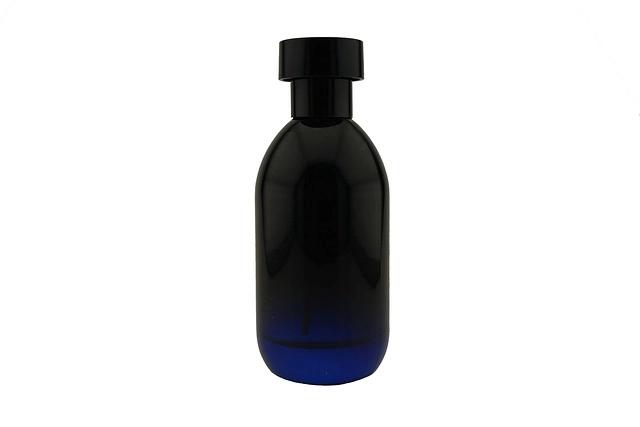Understanding allergen labeling on fragrances like Coach Perfume is crucial for consumers with sensitive skin. The EU mandates clear identification of potential allergens, including natural oils, synthetic compounds, and animal-derived fragrances. Staying informed about labels helps prevent adverse reactions and ensures a safe, enjoyable experience. Before using Coach Perfume, patch testing is advised to identify sensitivities, as it may contain triggers like citrus, floral, or musky notes. Always check ingredient lists, avoid contact with sensitive areas, and consult a dermatologist for personalized advice.
Are you sensitive to certain fragrances? Understanding allergen labeling on perfumes is crucial for those with skin sensitivities. This guide explores common allergens in perfumes, focusing on the popular Coach Perfume, its ingredients, and potential triggers. We also discuss identifying personal fragrance sensitivities and provide safe usage precautions for all fragrances. By understanding these aspects, you can make informed decisions to avoid allergic reactions.
- Understanding Allergen Labeling on Fragrances
- Common Allergens in Perfumes and Their Sources
- Coach Perfume: Ingredients and Potential Triggers
- Identifying Personal Fragrance Sensitivities
- Safe Usage and Precautions for All Fragrances
Understanding Allergen Labeling on Fragrances

Understanding Allergen Labeling on Fragrances
When it comes to fragrances, like Coach Perfume or Coach Cologne, allergen labeling is a crucial aspect for consumers with sensitive skin. The European Union has implemented strict regulations requiring manufacturers to clearly identify potential allergens present in their products. This move aims to empower customers and ensure transparency. Key allergens often found in perfumes include certain natural oils, synthetic compounds, and fragrances derived from animal sources.
By law, if a fragrance contains any of these known allergens, it must be listed on the product packaging or within the product information. For instance, ingredients like alcohol, paraben, and some plant-based extracts could trigger allergies in susceptible individuals. Staying informed about these labels is essential for anyone considering purchasing Coach Perfume or Coach Cologne, ensuring a safe and enjoyable experience without causing any adverse reactions.
Common Allergens in Perfumes and Their Sources

When it comes to common allergens found in perfumes, understanding the sources is key. Many fragrances contain natural extracts and synthetic compounds that can trigger allergic reactions in sensitive individuals. Among the most frequent offenders are certain flowers, fruits, and spices used for their aromatic properties. For instance, citrus notes like lemon or orange oil, commonly found in fresh, vibrant scents like Coach Cologne, can cause irritation due to their high levels of citral.
Similarly, floral ingredients such as lavender, rose, and ylang-ylang, often included in fragrances to evoke a sense of elegance and femininity, are known allergens. These natural extracts, while delightful to many, can lead to contact dermatitis or respiratory issues for those with sensitivities. Coach Perfume, like many luxury fragrances, may incorporate these ingredients, making it crucial for potential users to test the product before committing to ensure a positive experience free from allergic reactions.
Coach Perfume: Ingredients and Potential Triggers

The iconic Coach Perfume has captivated senses worldwide, but as with any fragrance, understanding its ingredients is crucial for those with sensitive skin or specific allergies. This parfum boasts a unique blend designed to evoke the spirit of New York City’s energy and sophistication. At the heart of its composition lie floral notes of jasmine and rose, combined with fruity accents from blackcurrant and pear. These delicate aromas are further enhanced by woody and musky undertones, creating a sophisticated and captivating scent.
While Coach Perfume is renowned for its elegant and modern fragrance profile, it’s essential to be mindful of potential triggers. Some individuals may experience sensitivities or allergies to specific ingredients, such as certain types of flowers, fruits, or synthetic compounds often used in perfumery. If you have a history of allergies, especially to fragrances, or if you’re considering purchasing Coach Cologne (a related product), it’s advisable to patch test the perfume before committing to a full-size bottle. This simple step can help prevent any unpleasant reactions and ensure a pleasant scent experience.
Identifying Personal Fragrance Sensitivities

Many people have personal fragrance sensitivities, often unknown until they’re exposed to a particular scent. When it comes to choosing a perfume or cologne, such as Coach Perfume or Coach Cologne, understanding your unique olfactory preferences and potential triggers is paramount. Different fragrances contain various ingredients, from floral notes to synthetic chemicals, each with the potential to stir up reactions in sensitive individuals.
Identifying these sensitivities can be a process of trial and error. Some people may experience mild irritation, like itching or redness, while others might have more severe allergic responses. Keeping track of your reactions after trying different perfumes can help you pinpoint specific allergens. This awareness is crucial when selecting fragrances to ensure a comfortable and safe olfactory experience.
Safe Usage and Precautions for All Fragrances

Using any fragrance, including Coach Perfume or Coach Cologne, requires mindfulness, especially for individuals with sensitive skin or known allergies. While rare, allergic reactions to fragrances can occur. To ensure safe usage, always conduct a patch test before applying any new perfume or cologne on a larger area of your skin. Apply a small amount behind your ear or on your inner wrist and wait 24-48 hours to observe for any irritation or discomfort.
Avoid touching your eyes, nose, and mouth after applying fragrances, as these areas are more susceptible to allergic reactions. When using Coach Perfume or Coach Cologne, do so sparingly, especially in well-ventilated spaces. Be cautious when wearing perfumes in public settings, as they can trigger allergies in others who may have sensitivities but are unaware of them. Always check ingredient lists if you have specific concerns about allergens, and never hesitate to consult a dermatologist for personalized advice regarding fragrance usage and potential allergies.






